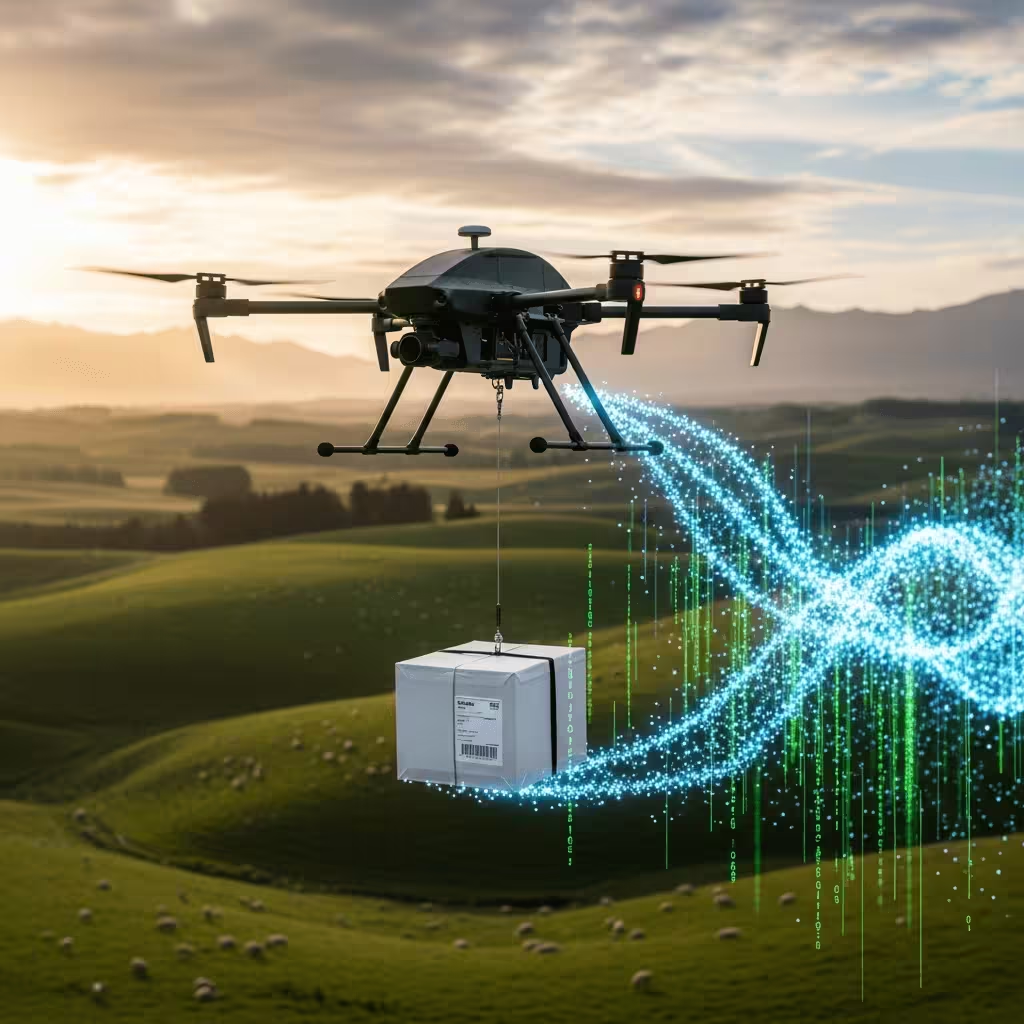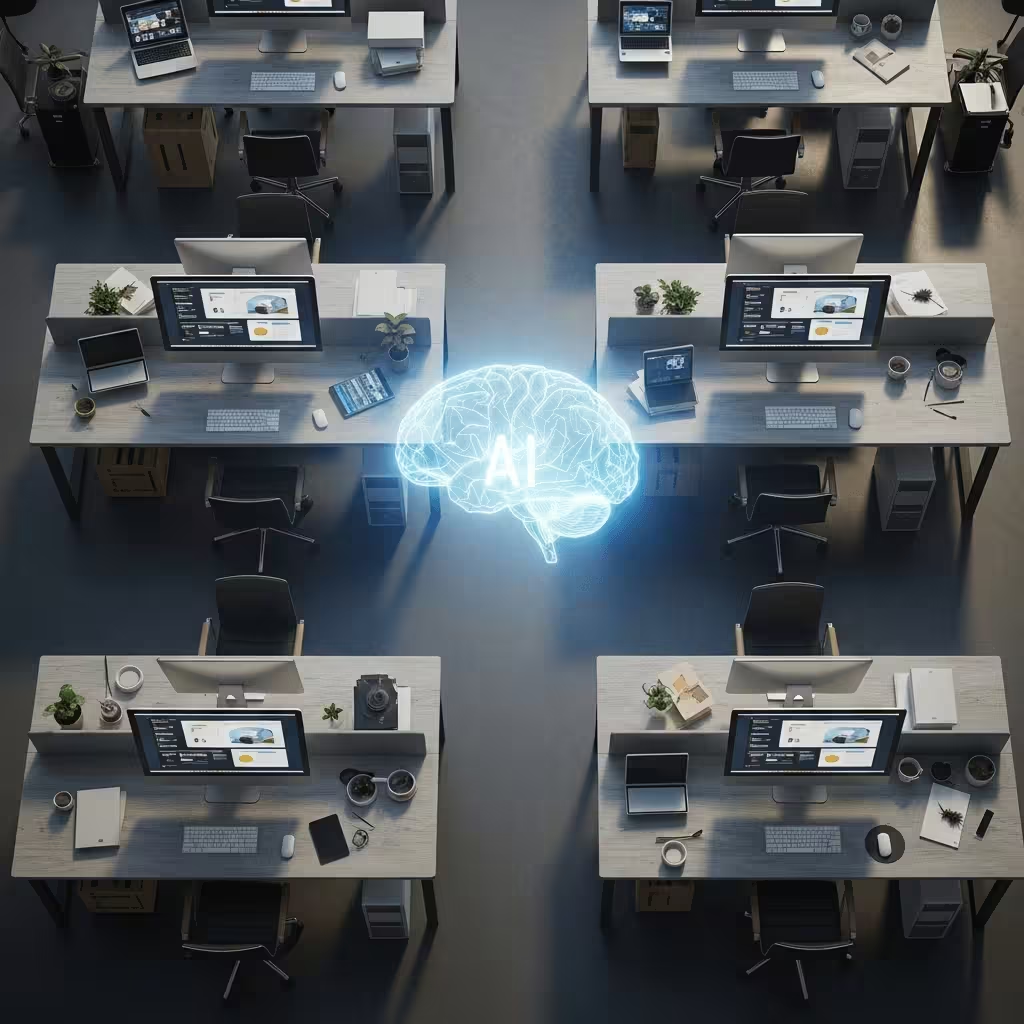AI replacing jobs is a topic of intense debate, as technological advancements threaten to automate numerous roles traditionally held by humans. Understanding these shifts is crucial for career planning and industry adaptation.
- Will AI completely replace human jobs?
- What jobs might AI replace in the digital marketing industry specifically?
- How can I future-proof my career against AI advancements?
- Is AI replacing jobs in New Zealand?
- What are some emerging jobs due to AI advancements?
- How does AI impact job satisfaction?
- Can small businesses benefit from AI without replacing jobs?
- What steps are involved in integrating AI into a business?
The topic of AI replacing jobs has become increasingly relevant as technology continues to advance at a rapid pace. The potential for artificial intelligence to automate tasks across various industries is both exciting and unsettling, leading many to question the future of employment. Jared Lean Digital, based in New Zealand, has taken an interest in exploring how artificial intelligence is set to transform the job market over the next five years. This exploration is crucial for both individuals and businesses that may be affected by these technological shifts.
As digital marketing experts, Jared Lean Digital understands that AI’s impact goes beyond mere automation. It is about enhancing efficiencies and transforming how we approach everyday tasks. Traditional models of work are getting a makeover, with AI systems increasingly taking over roles that involve data analysis, customer interaction, and even creative content generation. As these technological innovations become mainstream, they will inevitably displace several job types, pushing industries and employees to adapt swiftly.
Impact of AI on Job Market
The introduction of AI into the workforce is reshaping the job landscape at a staggering rate. It’s not just low-skilled jobs that are at risk; even skilled professions are beginning to feel the pressure. Roles in logistics, customer service, and finance are witnessing a significant transformation due to automation, streamlining processes that were once labour-intensive. This transformation requires a recalibration of skills, urging workers to pivot to roles that AI cannot easily replicate.
Preparing for the Future of Work
For many, the future of work might seem daunting. However, understanding the capabilities of AI and leveraging its strengths could be the key to staying relevant in an evolving market. In New Zealand and globally, retraining and upskilling initiatives are becoming more common, helping employees transition into roles where human intuition and creativity are necessary. Jared Lean Digital champions this proactive approach, guiding businesses on how best to integrate AI without losing the human touch in their operations.
As we delve deeper into the topic of AI replacing jobs, this blog will shed light on the occupations most at risk and discuss strategies for individuals and businesses to embrace this change effectively. Readers will gain insight into how technological advancements are not just a threat but a pivotal opportunity to redefine career paths and business strategies for the better.

Industries Most Affected by AI
As artificial intelligence continues to evolve, its influence is being felt across diverse industries, each experiencing varying degrees of automation. While AI presents opportunities for unprecedented efficiency, it also poses challenges, particularly in areas where repetitive tasks are prevalent. Identifying the sectors most susceptible to change is crucial for understanding how the labour market may evolve and, importantly, where opportunities and risks lie.
Manufacturing and Production
AI has greatly impacted the manufacturing sector, known for its extensive use of automation and robotics. Many jobs in production, such as assembly line work and quality control, have been increasingly automated. Machines powered by AI algorithms are now capable of performing tasks with greater precision and at a faster rate than human workers. This shift improves productivity and lowers costs but poses a risk of job loss for workers performing routine manual tasks.
Customer Service and Support
The customer service industry is undergoing a significant transformation due to AI advancements. Technologies such as chatbots and automated response systems now handle a high volume of inquiries and service requests. These AI tools can quickly and efficiently address routine customer issues, reducing the need for human agents. However, the demand for highly skilled professionals who manage complex, nuanced customer interactions remains strong, emphasizing the importance of balancing AI integration with personal expertise.
Transportation and Logistics
The transportation industry is witnessing a paradigm shift with the introduction of AI technologies, such as self-driving vehicles and automated logistics systems. AI can optimize delivery routes, manage inventory, and provide real-time tracking solutions. While these innovations enhance operational efficiency, they also threaten jobs traditionally held by drivers and warehouse workers. Businesses must strategize to retrain workers and integrate AI seamlessly to mitigate potential workforce disruptions.
Administrative and Data Entry
Administrative roles, especially those involving data entry and processing, are highly susceptible to automation. AI-driven tools can manage scheduling, billing, and a range of clerical tasks with impressive accuracy and speed. For companies, the adoption of AI in administrative functions can lead to significant cost savings and enhanced operational efficiency. Nonetheless, roles that require strategic decision-making and interpersonal skills remain vital and less likely to be fully automated.
In understanding these trends, industries can better prepare for the changes AI may bring, developing strategies that ensure a balanced approach to automation and employee engagement. As automation continues, Section 3 will delve into how individuals can adapt by acquiring new skills and thriving alongside AI-driven innovations in the workplace.

Adapting to AI in the Workplace
As AI technology continues to advance rapidly, the landscape of the workplace is transformed. A proactive approach to adapting these changes will not only mitigate potential job losses due to AI but also open doors for new opportunities. Here, we will delve into practical strategies and insights that can assist individuals and organisations in adapting to the ongoing changes brought by AI in the workforce.
Skills for the AI Era
The introduction of AI into various job sectors means that the skills most valued in the workforce are shifting. While AI takes on routine and data-driven tasks, human roles are likely to focus more on areas where emotional intelligence and creativity come into play. Here are key skills that will gain prominence:
- Complex Problem Solving: As AI handles more straightforward processes, human roles will increasingly revolve around tackling complex and unforeseen challenges.
- Critical Thinking: The ability to logically analyse situations and make decisions remains irreplaceable by AI, proving invaluable in strategic roles.
- Emotional Intelligence: Interpersonal skills, such as empathy and communication, are uniquely human and will become essential, particularly in jobs involving high levels of client or team interaction.
By focusing on acquiring and honing these skills, professionals can position themselves favourably in an AI-enhanced job market.
Building AI Complementary Careers
Rather than seeing AI as a replacement, it is beneficial to perceive it as a tool that can complement and enhance one’s career. Here are a few ways to build a career alongside AI:
- Data Analysis and AI Training: AI systems require ongoing training and assessment. Careers in data analysis and AI model auditing are increasingly important.
- AI System Management: As businesses adopt AI, roles focusing on overseeing, troubleshooting, and integrating these systems are on the rise.
- Innovation and Development Roles: Those interested in technology advancement can engage directly in designing and improving AI solutions.
By identifying roles that work harmoniously with AI, individuals and businesses can harness AI’s potential to improve productivity and innovation.
Developing an AI Integration Strategy
For businesses, integrating AI successfully involves more than just technology adoption. A comprehensive AI strategy should be developed to maximise its benefits effectively. Here’s a basic framework for organisations to consider:
- Assess Opportunities: Identify areas within the organisation where AI can offer efficiencies or fill gaps in operations.
- Invest in Training: Equip employees with the necessary AI-oriented skills to ensure a smooth transition and fully harness AI’s capabilities.
- Monitor and Adjust: Continuous evaluation and adjustment of AI strategies are crucial as technology and business needs evolve.
Through strategic integration, AI can become a superlative tool that enhances business operations and employee effectiveness.
In conclusion, adapting to AI in the workplace requires both individual initiative to develop relevant skills and organisational commitment to integrate AI in a way that complements human effort. These strategies facilitate navigating the evolving job landscape, ensuring continued growth and relevance for businesses and professionals alike.
Why Choose Jared Lean Digital for AI Replacement Strategies
In the rapidly evolving domain of digital marketing, few companies demonstrate the agility and foresight of Jared Lean Digital. As New Zealand navigates the potential of AI replacing jobs, understanding these dynamics becomes crucial. Located within the vibrant landscape of New Zealand, Jared Lean Digital has carved out a niche by offering unparalleled AI replacement strategies designed to cater to both local and international clientele.
Experienced Local Experts
What sets Jared Lean Digital apart is its team of dedicated experts who bring a wealth of experience in digital marketing and AI integration. Their understanding of the local market dynamics allows them to tailor solutions that are not only innovative but also culturally and economically relevant to the region. Clients can rest assured that the proposed strategies are informed by a deep comprehension of both global trends and local nuances.
What Sets Us Apart
A primary differentiator for Jared Lean Digital is their commitment to delivering personalized service. They focus on building strong relationships with clients, ensuring that strategies for AI replacement are not just a one-size-fits-all solution, but bespoke strategies addressing the unique challenges and goals of each business. The company is renowned for its reliability and professionalism, consistently exceeding client expectations through agile service delivery and cutting-edge technological solutions. Contact our expert team to learn more about how we can support your business with the challenges of AI evolution.
Through collaborations and projects, Jared Lean Digital has maintained a strong reputation as a trusted partner in digital transformation. Their work is characterized by a dedication to ethical practices and tangible results, making them a standout choice for those impacted by the potential of AI replacing jobs.
In the upcoming section titled “Frequently Asked Questions,” we aim to address the most common concerns regarding AI replacing jobs, providing clarity and assurance to help readers navigate the complexities.
Frequently Asked Questions
Will AI completely replace human jobs?
While AI will likely automate certain tasks, it is expected to complement human roles rather than completely replacing them. Creativity, emotional intelligence, and complex problem-solving are areas where humans still excel.
What jobs might AI replace in the digital marketing industry specifically?
Tasks such as data analysis, SEO optimisation, and some aspects of customer service may see greater AI integration. However, creative content creation and strategic planning remain largely in the human domain.
How can I future-proof my career against AI advancements?
Focus on developing skills that are difficult for AI to replicate, such as critical thinking, creativity, and emotional intelligence. Continuous learning and adaptability are key.
Is AI replacing jobs in New Zealand?
Yes, AI is starting to impact the job landscape in New Zealand, particularly in sectors like manufacturing and logistics. However, it also creates opportunities for new roles in AI development and management.
What are some emerging jobs due to AI advancements?
AI is paving the way for new career paths such as data science, AI ethics consultancy, and machine learning engineering. These roles focus on designing, managing, and ethically deploying AI technologies.
How does AI impact job satisfaction?
AI can take over monotonous tasks, potentially increasing job satisfaction by allowing employees to focus on more engaging and meaningful work. However, it may also create stress due to changes in job roles.
Can small businesses benefit from AI without replacing jobs?
Absolutely. Small businesses can leverage AI to improve efficiency, analyse customer data, and personalise marketing efforts without necessarily reducing their workforce.
What steps are involved in integrating AI into a business?
Businesses should start by identifying areas that could benefit from AI, invest in training for employees, and consider ethical implications of AI usage. A strategic approach ensures smooth integration.
Related Articles
- How to Implement AI in Your Business
- 4 Ways Top CEOs Are Making AI Work for Them
- AI SEO Services — Future-proof your business with AI-driven marketing



